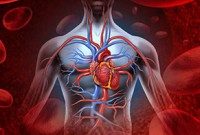It is assumed by many that vitamin C is only required in tiny amounts sufficient to prevent scurvy. It is true that this vitamin C-deficiency disease spawned the chemical name ascorbate for vitamin C. Ascorbate literally means “against scurvy.” Were this its only function, the RDA for vitamin C would be sufficient for most people on the planet. But, there’s vastly more it can do.
Aside from its ability to prevent scurvy, vitamin C is also required in many essential metabolic processes. A few of the highly studied physiological functions are discussed below.
Collagen Synthesis
Vitamin C is essential for the synthesis and maintenance of collagen, the most abundant protein in the human body. Collagen comprises about 25% to 35% of the total protein content in the body. Its strong, connective, elongated fibrils are found in skin, ligaments, tendons, cartilage, bone, blood vessels, the intestines, and the discs between spinal vertebrae. It is also found in the cornea and in muscle tissue.
Important research relating vitamin C to collagen has shown:
- Vitamin C helps protect the skin by promoting the production and migration of fibroblasts that support normal wound healing.
- Vitamin C protects against skin wrinkles seen in premature aging.
- Increased vitamin C uptake by vascular smooth muscle cells increases the synthesis and maturation of Type I (aka Type 1) collagen. Type I collagen accounts for about 90% of the body’s total collagen content.
- High concentrations of vitamin C stimulate synthesis of Type IV collagen, which has important filtration characteristics in the kidney, the blood-brain barrier, and the arterial lining .
Basement Membrane Synthesis
Basement membrane is a thin, sticky layer that supports epithelial cell layers — tissues that line the surfaces and cavities throughout the body (like the lining of the stomach and the lining of blood vessels). It binds the glomerular capillaries in the kidneys to the Bowman’s capsule which is necessary for blood filtration. It also attaches the pulmonary capillaries in the lungs to the lung alveoli. In addition, basement membrane functions as a restrictive barrier to prevent cancer cells from passing deeper into tissues.
Vitamin C is related to the basement membrane in the following ways:
- Vitamin C maintains the gel-like state of the basement membrane, helping to suppress tumor invasion through the basement membrane.
- Vitamin C deficiency reduces the release of basement membrane components (Type IV collagen, laminin, elastin) in blood vessels.
- Vitamin C accelerates the deposition of other important basement membrane proteins in the area between the dermis and epidermis.
Carnitine Synthesis
Vitamin C is an essential cofactor for the synthesis of carnitine – an amino acid that is necessary for the transport of fatty acids into mitochondria. This transfer of fatty acids is an important factor in the production of the ATP that is necessary for cellular energy.
Neurotransmitter Synthesis
Vitamin C is directly involved in the synthesis of neurotransmitters. Neurotransmitters are biological molecules that facilitate the electrical flow between neurons and nerve cells in the body and in the brain. The body’s ability to respond to the environment, as well as the brain’s ability to think and to remember, is dependent on these essential substances.
Promotes Calcium Incorporation into Bone Tissue
The formation and maintenance of quality, high-density bone material requires vitamin C. Vitamin C promotes assimilation of calcium into the bone, protects against leaching of calcium out of the bones, and fights the oxidative stress that works against assimilation.
Additional relationships between vitamin C and bone metabolism include the following:
- Vitamin C stimulates the formation of the cells that incorporate calcium into bone tissue (osteoblasts).
- Vitamin C inhibits the development of cells that dissolve calcium out of bone tissues (osteoclasts).
- As a powerful antioxidant, vitamin C fights oxidative stress in bone tissues.
- Collagen cross-linking, required to form the dense matrix for optimal bone strength, requires vitamin C.
Immune System Function and Maintenance
The immune system functions of vitamin C are so important that they are discussed in greater detail in 20 Ways Vitamin C Supports a Healthy Immune System.
Here is a quick list of how vitamin C works with the immune system:
Vitamin C supports:
- Production of interferons
- Function of phagocytes
- Cytokine production by white blood cells
- Cell-mediated immune response
- Nitric oxide production by phagocytes
- T-lymphocyte proliferation
- B-lymphocyte proliferation
- Antibody production and complement activity
- Natural killer cell activity
- Prostaglandin formation
- Cyclic GMP levels in lymphocytes
- Localized generation of, and/or interaction with, hydrogen peroxide
- Detoxification of histamine
- Neutralization of oxidative stress
- Immune response to vaccination
- Mucolytic effect
- Function of antibiotics
Vitamin C inhibits:
- Various forms of T-lymphocyte death
- Neuraminidase production






